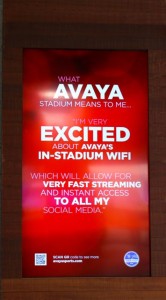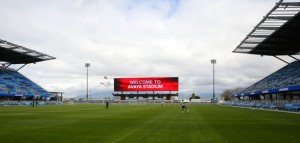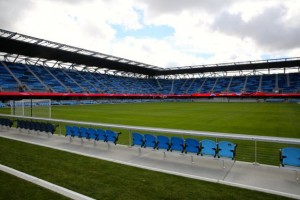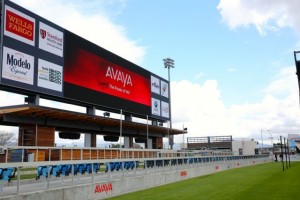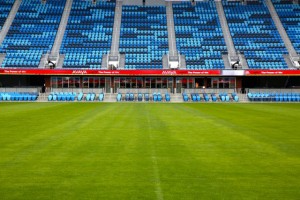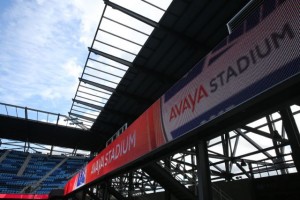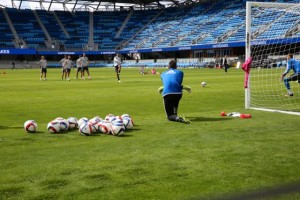
Practice on the pitch at Avaya Stadium in San Jose. Credit all photos: Avaya (click on any photo for a larger image)
While all the bells and whistles for Avaya Stadium may not be in place yet, one thing will be at full strength for the preseason tilt — the stadium’s free fan-facing Wi-Fi network. With 180 Wi-Fi access points from Wi-Fi gear supplier Ruckus Wireless and a 10 Gbps backbone pipe, the network should be ready for the first batch of selfies and other communications from the Bay area’s newest sports stadium, located right next to the San Jose airport a little bit south and west of the San Francisco 49ers’ Levi’s Stadium.
If the Avaya Stadium app gets finalized in time, fans who attend Saturday’s game will be able to use the “Phase 1” features which include ticketing, parking and concession information. According to Peter Thompson, managing director of global sponsorship for Avaya, a follow-on phase of the app will add in-game statistics, among other features being considered. Thompson said the unfinished feeling to the app is a bit by design, since Avaya and Earthquakes officials want to first get some fan feedback on things they’d like to have in an interactive platform.
“We’re trying to make this collaborative,” Thompson said in a phone interview Friday afternoon, following the official ribbon-cutting ceremonies at the stadium. “We’ll be looking for fans to tell us what they want [in the app] and see which ideas float to the top.”And even though the crowd this weekend will be limited to 10,000 fans, Thompson is quite sure the network will see almost 10,000 devices access it, from fans as well as those from media at the game. Fans may want to switch to the Wi-Fi network early, since according to Thompson there isn’t yet a distributed antenna system (DAS) deployment inside Avaya Stadium, which might make cellular communications a bit constrained.
And even if the Avaya Stadium app launches in time for the game, Thompson isn’t sure it will be the most-used application. When Avaya ran networking operations for the recent Winter Olympics in Sochi, Russia, Thompson said iTunes and DropBox were at the top of the list.
“It [app usage] wasn’t what we expected, it wasn’t Facebook or Twitter [at the top],” Thompson said. “It will be interesting to see what happens.”
We will have stats from the Avaya Stadium network following the preseason match as well as the sold-out home opener on March 22. More photos from the stadium below.
